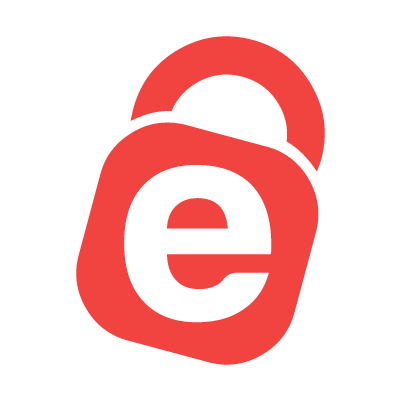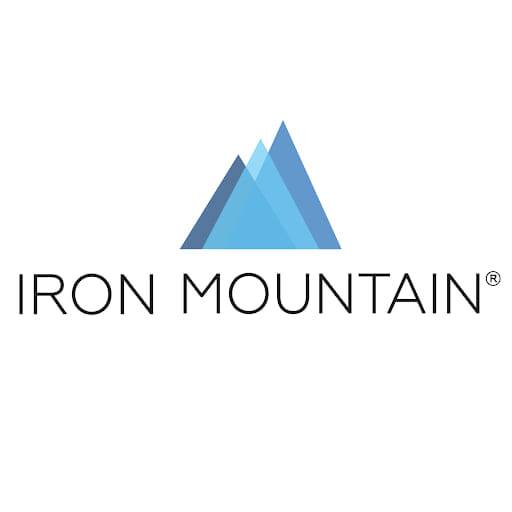10 Premier Cloud-Based Software Providers in Singapore Offering Flexible, Scalable Business Solutions
Cloud-based software is changing the way businesses run – and it’s simpler than it sounds. Instead of installing programs on office computers or setting up costly servers, cloud tools let you access everything you need through the internet. It’s like renting a fully serviced office space instead of buying and furnishing your own building. You get flexibility, lower costs, and the ability to work from anywhere.
For SMEs, that means faster growth, fewer tech headaches, and more time to focus on customers. Whether it’s managing inventory, tracking sales, or storing files securely, cloud software for small business offers the agility and resilience needed to thrive in today’s fast-moving world.
Take your business to the cloud. Explore Becozon’s directory of top cloud-based software developers trusted by Singapore SMEs.
How SMEs in Singapore Benefit from Cloud-Based Software: A Smarter Way to Work, Scale, and Stay Compliant
From remote work to digital payments, Singapore’s small businesses are finding smarter ways to operate – and cloud technology is powering the change. Whether you manage a logistics company, F&B outlet, or legal practice, there’s a cloud solution tailored to your needs. With the Smart Nation movement accelerating digital adoption, now is the time to upgrade and stay ahead.
Today’s cloud or web-based software offers secure, mobile-friendly access to everything from accounting and scheduling to inventory and CRM. These tools reduce admin work, improve team coordination, and make it easier to serve customers in real time. For growing businesses, cloud platforms offer the adaptability, efficiency, and speed needed to thrive in a fast-paced market.

Why Now? Cloud Adoption in Singapore’s Smart Nation Push
Singapore is moving fast toward a fully digital economy, and the tools to support that shift are already here. With government support, strong infrastructure, and a growing ecosystem of providers, now is the time for SMEs to embrace cloud adoption confidently.
Driven by Smart Nation 2.0
Singapore’s enhanced Smart Nation strategy places cloud infrastructure at the heart of its digital economy goals. This includes stronger support for cloud-native apps that power smarter services, better data use, and seamless integration across sectors. Government-linked providers like CrimsonLogic are helping lead the way by offering secure, scalable platforms for businesses of all sizes. The emphasis is clear: cloud adoption is no longer optional, but an essential part of building a future-ready business environment.
Dedicated SME Funding & Grants
Small businesses don’t have to navigate cloud adoption alone. There are several government grants and cloud adoption incentives for SMEs, including programs under IMDA’s SMEs Go Digital initiative. The Enterprise Compute Initiative, introduced in Budget 2025, offers funding, consultancy support, and access to cloud platforms. These resources are designed to lower barriers and make it easier for SMEs to modernize with confidence.
Platform Availability & Scalability
Singapore offers a strong cloud ecosystem with both global and local providers that support enterprise-grade performance and scalability. Whether you need a private cloud for sensitive data or a flexible public cloud setup, there’s a platform to suit your business goals.
- Amazon Web Services (AWS), Microsoft Azure, and Google Cloud for global scale
- Singtel cloud hosting and StarHub cloud services for local infrastructure
- Built-in API integration for easy connection across systems
This flexibility allows SMEs to scale confidently and integrate smarter, faster tools.
Competitive Edge Through Digital Alignment
Adopting cloud tools positions SMEs to take part in broader digital initiatives and public–private partnerships. With web-based software, businesses can respond faster to market changes and serve customers more efficiently. From accounting platforms to cloud solutions for retail, these tools help streamline daily operations, improve customer experience, and show clients and partners that your business is ready for what’s next.
Future-Proofing and Talent Upskilling
As businesses adopt cloud platforms, employees need the skills to make the most of them. Singapore offers a range of digital skills and cloud-readiness training programs to help teams stay ahead. A small design studio, for example, can enrol staff in workshops to learn cloud collaboration tools, improving turnaround times and client communication. Upskilling isn’t just about tech know-how, it’s about building confidence to grow with your systems and meet future demands.

Key Business Benefits for SMEs: From Cost Savings to Data Resilience
Cloud-based software isn’t just for big companies with deep pockets. For Singapore SMEs, it offers practical, cost-effective solutions that improve performance, reduce tech headaches, and free up your time to focus on what really matters: growing your business.
Lower Upfront and Ongoing Costs
With flexible cloud software pricing models, SMEs can avoid large upfront investments and only pay for what they need. Many cloud software for small business platforms bundle essential tools into one subscription. Additionally, built-in remote access means teams can work from anywhere without added infrastructure costs, making day-to-day operations more affordable and efficient.
Always Up-to-Date, Automatically
No more downloading patches or waiting for IT support. With cloud platforms, software updates run automatically in the background. You always have access to the latest features, security enhancements, and performance improvements with no manual steps needed. This ensures your tools stay reliable and secure, helping your team work efficiently with minimal downtime or disruption.
Built-In Data Backup and Recovery
Accidental deletion? Hardware failure? Cloud platforms automatically back up your data and keep version histories, so you can recover important files quickly and confidently. These built-in features support both disaster recovery and everyday business continuity, giving you peace of mind. You won’t need extra tools or paperwork – just the assurance that your data is safe, secure, and ready when you need it.
Scales With You, Not Against You
As your business grows, cloud-hosted software makes it easy to add users, expand storage, or access new features on demand. This kind of scalability means you’re never locked into more than you need, and always ready for what comes next. Adjust plans anytime without changing your entire system or disrupting operations.
Less Reliance on IT Outsourcing
Because cloud tools are user-friendly and supported directly by the provider, you won’t need to hire a full-time IT team or call for help every time something goes wrong. Most platforms include built-in support, automatic updates, and intuitive dashboards that your team can manage with minimal training. This reduces your dependence on external vendors and gives you more control over day-to-day operations, saving both time and ongoing outsourcing costs.
Flexible Access and Better Performance
Cloud tools give your team remote access and mobile accessibility, so they can stay productive whether they’re in the office or on the move. Built-in software updates keep systems running smoothly without manual effort. Additionally, improved system performance means faster load times and fewer delays. This is how cloud software improves productivity – by removing friction and helping your team work smarter from anywhere.

Core Cloud Models Explained: One Solution Doesn’t Fit All
Not all cloud solutions are created equal, but that’s actually a good thing. Depending on your business needs, there are different models built to handle different tasks. Here’s a quick breakdown of the core cloud categories (no tech degree required).
Cloud Storage and Backup: The Easiest Way to Start
Think of cloud storage as your digital filing cabinet, but smarter, more secure, and always within reach. Services like Google Drive, Dropbox, or OneDrive let you store, access, and share files from anywhere using web-based software. For SMEs, this is often the first step into the cloud. You get automatic backups, version history, and mobile accessibility, so your team can retrieve documents on the go. It’s a simple, affordable way to protect your data and streamline everyday workflows without added infrastructure or complexity.
IaaS (Infrastructure as a Service): Rent What You Need
IaaS lets you tap into computing power, storage, and networking without owning or maintaining physical servers. Providers like AWS and Microsoft Azure offer highly flexible public cloud infrastructure designed for speed, system performance, and seamless scalability.
IaaS is a strong fit for businesses developing custom applications or managing heavy data workloads. One interesting fact: many start-ups now launch their entire tech stack on IaaS before leasing an office or hiring an IT team. With usage-based pricing and on-demand resources, you can scale quickly and keep your operations lean, agile, and ready for growth.
PaaS (Platform as a Service): Build Without the Baggage
Need to build custom apps or digital products? PaaS gives your developers everything they need to design, test, and launch software – all in one managed environment. There’s no need to set up physical servers or worry about backend maintenance. Platforms like Google App Engine and Heroku handle the infrastructure, so your team can focus entirely on development and innovation.
PaaS is ideal for businesses that want to move quickly, scale efficiently, and maintain flexibility as their products evolve. Whether you’re launching a client portal, internal dashboard, or customer-facing app, PaaS makes the entire process faster, easier, and more cost-effective.
SaaS (Software as a Service): Tools That Just Work
This is what most SMEs already use every day. SaaS for SMEs means getting full-featured software through your browser, with no installation or server setup. It’s fast, scalable, and designed to grow with your business. Many platforms are built on multi-tenant architecture, allowing providers to update and secure the software continuously without disrupting users.
Here are just a few examples:
- Legal practice management software – for secure case tracking, document storage, and collaboration.
- Cloud-based POS systems – for retail and F&B businesses managing sales, inventory, and customer data.
- Logistics and fleet management SaaS – for real-time routing, delivery tracking, and cost control.
- Property valuation platforms – for real estate firms managing appraisals and reports across locations.
Most tools also support API integration, so you can connect them easily with your other business systems.

Local Regulations and Data Compliance: What Every Business Should Know
Regulations such as the PDPA and MAS guidelines set the rules in Singapore. Ensuring compliance is key when moving to the cloud, especially in industries like finance, law, and healthcare. Here’s how SMEs can stay secure, compliant, and trusted.
Personal Data Protection Act (PDPA): The Foundation for Trust
Singapore’s PDPA governs how businesses collect, use, disclose, and store personal data. Businesses must ensure proper consent, data accuracy, retention controls, and breach response protocols. When planning how to migrate to cloud software, make sure you align your approach with PDPA requirements. Appointing a Data Protection Officer (DPO) and implementing access controls and encryption are essential steps to protect customer information and maintain compliance throughout your digital operations.
Choosing a Certified Cloud Provider: SS 584 and Security Standards
For SMEs handling sensitive or regulated data, working with trusted cloud providers is essential. Look for providers certified under Singapore’s SS 584 Multi‑Tier Cloud Security standard. This framework ensures strong safeguards for data compliance, system performance, cybersecurity, and operational reliability across sectors like finance, healthcare, and law.
Many web-based software offer access to local data centres, support for private cloud environments, and guaranteed uptime SLA terms written into their contracts. These features give businesses the ability to meet regulatory expectations confidently while improving stability, long-term resilience, and peace of mind in a fast-moving digital landscape.
Sector-Specific Guidelines: Finance, Law, and Healthcare Must-Dos
Some industries require tighter security and compliance measures. Be sure your cloud setup meets the specific needs of your sector to avoid costly missteps and ensure long-term trust.
- Financial institutions must follow the MAS TRM Guidelines, which call for risk assessments, robust authentication, and detailed business continuity and disaster recovery strategies that are regularly tested and updated.
- The Cybersecurity Code of Practice outlines essential safeguards such as encryption, system hardening, and secure identity access controls.
- Legal firms and healthcare facilities must adopt role-based access, encrypted storage, and auditable workflows to maintain compliance and protect sensitive data.
Summary Tips for SMEs:
- Appoint a DPO to oversee compliance and maintain clear documentation of data management policies.
- Choose trusted cloud providers certified under SS 584 or ISO 27001, and ensure they align with PDPA.
- Follow sector-specific rules, especially for finance, healthcare, or legal services, as outlined by MAS.
- Ensure safe cross-border data transfers using compliant providers or contractual safeguards.
- Consider using a private cloud setup if your business handles sensitive or high-risk information.

Common Barriers to Adoption and How to Overcome Them
Even with all the benefits of cloud-based software, a lot of businesses hesitate to make the switch. That’s completely normal. Transitioning to any new system comes with questions, especially when time, money, and data are involved. Let’s unpack the top concerns and how to tackle them confidently.
“Migration Will Disrupt My Business”
Many business owners worry that switching systems will mean downtime, confusion, or lost data. The truth is, most providers offer clear guidance on how to migrate to cloud software smoothly. You don’t have to overhaul everything at once. You can start with just one function, like invoicing or file storage. With vendor support, step-by-step onboarding, and minimal disruption, migration becomes a manageable process that sets your business up for long-term efficiency.
“What If My Data Gets Hacked?”
Security is a top concern for any business moving to the cloud – and today’s platforms are built with protection in mind. Leading providers invest heavily in cybersecurity and offer built-in safeguards such as:
- End-to-end encryption to protect data in transit and at rest
- Multi-factor authentication to ensure only the right people have access
- Automatic backups and robust disaster recovery plans that minimize downtime
- Continuous monitoring, audit trails, and rapid incident response protocols
Choosing a provider with strong security credentials helps protect your business from data loss, reputational damage, and operational disruption.
“It’s Too Expensive for a Small Business Like Mine”
Modern cloud-hosted software is designed to be flexible and affordable, with subscription plans that scale to your needs. Many providers offer cloud software for small business that bundles essential tools – such as invoicing, storage, or CRM – into one easy-to-manage platform. You only pay for what you use, helping you control costs while staying competitive.
“I Don’t Want to Be Stuck with One Vendor”
Vendor lock-in is a real fear, especially when systems don’t connect easily or limit your flexibility. To avoid this, prioritize vendor-agnostic solutions that allow for smooth API integration across platforms. A thoughtful software vendor selection process helps ensure you choose tools that can evolve with your business, giving you control over your data and the freedom to switch providers if needed.
“We’re Just Not Tech-Savvy Enough”
You don’t need to be an expert to use cloud tools. Most web-based software is designed for ease of use, with clean dashboards, guided setup, and local support when needed. Features like remote access and mobile accessibility make it simple for your team to stay productive from anywhere. Additionally, automatic software updates ensure you’re always using the most secure and up-to-date version without even lifting a finger.

Real-World Applications: How Cloud Is Powering Singapore’s Most Agile SMEs
Wondering how cloud-based tools work in the real world? Here’s how businesses across Singapore are using them to scale smarter, serve faster, and stay competitive.
Retail: Smarter Sales and Inventory with Cloud POS
Take a small F&B outlet in Tiong Bahru. They started with a simple cloud-based POS, then expanded to cloud solutions for retail that included inventory tracking, sales analytics, and customer loyalty tools. With everything synced in real time, the team cut down manual work and made faster decisions. These tools helped them grow smoothly and open a second branch within the year.
Logistics: Real-Time Routing and Cost Efficiency
A mid-sized logistics company adopted a cloud-based platform to manage delivery orders, driver schedules, and GPS tracking in real time. Dynamic routing helped reduce mileage, and clients received instant updates via app or SMS. The system streamlined operations, lowered fuel costs, and improved service reliability without the need for manual coordination.
Law: Secure Case Management from Anywhere
A boutique law firm in the CBD adopted a cloud-based case management system to streamline their daily operations. With secure remote access, lawyers can work from court, home, or on the go. Files are stored safely in the cloud with role-based permissions and audit trails. It’s a clear example of how cloud software improves productivity in a demanding, document-heavy profession.
Real Estate: On-the-Go Property Management
A real estate agency adopted a cloud CRM to manage listings, viewings, and client follow-ups more efficiently. With mobile accessibility, agents can update property details, schedule appointments, and respond to inquiries while in the field. The web-based software requires no installation and works across devices, helping teams close deals faster and maintain strong client relationships from anywhere.
Home Services: Smarter Scheduling and Dispatch
Small businesses in plumbing, aircon repair, and pest control are using field service software to simplify operations. From booking appointments to dispatching technicians, everything runs through a single platform. Field service software also enables real-time job tracking, digital invoicing, and customer updates, helping teams stay organized, reduce delays, and deliver better service without relying on paper schedules or manual coordination.
The future of business is in the cloud – flexible, efficient, and built for growth. Don’t get left behind. Discover how the right software can transform your operations with Becozon’s list of premier cloud-based software providers in Singapore. From retail to real estate, the right tools are just a click away. Explore the list and take your next step toward smarter business today.
Latest Becozon Offer
Boost your business with these exclusive deals by our esteemed Becozon partners
Looking for a CRM software?
Get customisable, cloud-based sales and operations CRM software suitable for any industry. Contact us for a demo today!
Contact Us




